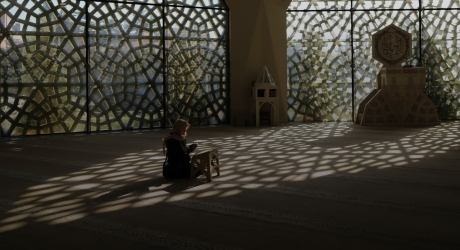Farida Khanam | The Speaking Tree | November 05, 2016 | New Age Islam
At a meeting in New Delhi, Danial A Latifi shared with us a noteworthy experience with reference to the issue of talaq or divorce. Latifi, a senior advocate of the Supreme Court of India and an expert on Muslim personal law, was the grandson of Badruddin Tyabji, former president of the Indian National Congress. The story he narrated was that once a Muslim came to him and said that he wanted to divorce his wife and needed legal advice. Danial Latifi said to him: "If you want to divorce your wife, you should follow the method of divorce as prescribed in the Quran." Professing his ignorance of this method, the client asked to have it explained to him. Latifi said that talaq or divorce in Islam was a process whereby the husband had to repeat the Arabic word 'talaq'- 'I divorce you'- to his wife three times at one monthly intervals over a period of three months.
When it came to the third month, he had the choice of either withdrawing the first two utterances of the word 'talaq', or finalising his divorce by uttering the word 'talaq' for the third time.
Then the decision would be irrevocable. The man went away and said the word 'talaq' once to his wife. The next month, instead of pronouncing the second talaq, he came to Danial Latifi with a packet of sweets. He said in a very happy mood: "You have saved my marriage!" Then he explained that in the course of the first month, all his anger had evaporated. He went on, "Once in a normal frame of mind, I found that refraining from divorce and pursuing a policy of adjustment was a far better option. It became simply a case of 'buying time'." The Islamic system of divorce had afforded him plenty of time to think about the consequences of a divorce and this had led him to revise his earlier decision. The early period of Islam, called 'Quroon Salaasa' or The Three Periods, is held to be the golden age in Islam. It covers the time of the Prophet, his Companions and the Companions of the Companions. In these three periods, people followed the Quranic method of divorce. The first caliph Abu Bakr followed the same practice. Only in certain exceptional cases did Umar, the second caliph, take the extreme stand of accepting as final the utterance of three talaqs on a single occasion. He did so only in those cases where he felt that the husbands were seriously misusing the permission to divorce. The permission to divorce granted by the caliph in such cases was actually intended as a form of punishment, and the outcome was foreseen as a deterrent to others. But it should be understood that no executive order of any caliph enjoys the status of a law of the shariah. No such executive order, no matter who makes such a decision, can overrule the law of the Quran, which is clearly spelt out in specific terms.
An executive order can never become a permanent rule of the shariah. In later periods, when social and spiritual degeneration had set in, greater emphasis began to be attached to the form of religion rather than to the spirit. It must be clarified that going by spirit, even if talaq is pronounced three times (in succession) in an outburst of anger, it would be treated as one utterance only. This is because when one is in a rage, it was likely that one would not be able to control oneself enough to pronounce the word only once. There is an illustrative incident in this regard. One such case came to the notice of the Prophet where the person said, "I have announced my intention to divorce my wife three times on a single occasion, but now I want to take her back, although I have uttered the word talaq three times." The Prophet replied, "Yes, I know you have said it three times, but it will be taken as one utterance. For talaq is to be said over a period of three months. So treat it as just one occasion and take your wife back." (Musnad Ahmad) The Prophet of Islam once said: "In the eyes of God, talaq is the most abhorrent practice, although it is legally allowed in the rarest of rare cases." (Abu Dawud) In view of what the Prophet said, Muslims ought to ideally lead a life of adjustment after marriage so that the divine plan regarding family life may be fulfilled. Talaq may be resorted to only in exceptional cases. The executive order issued by the second caliph (of pronouncing talaq three times in succession, at once) should remain a suspended practice for no Muslim ruler followed suit. First and foremost, Muslims must make every effort to solve marital problems at the family level. However, if any problem of a marital nature does arise, the sole option for Muslims should be to refer their cases to the courts established under the law of the land because, today, we live in an age of democracy and national governance. (The writer teaches at Jamia Millia Islamia and she is Chairperson, Centre for Peace and Spirituality International). ¦ Post your comments at speakingtree.in







